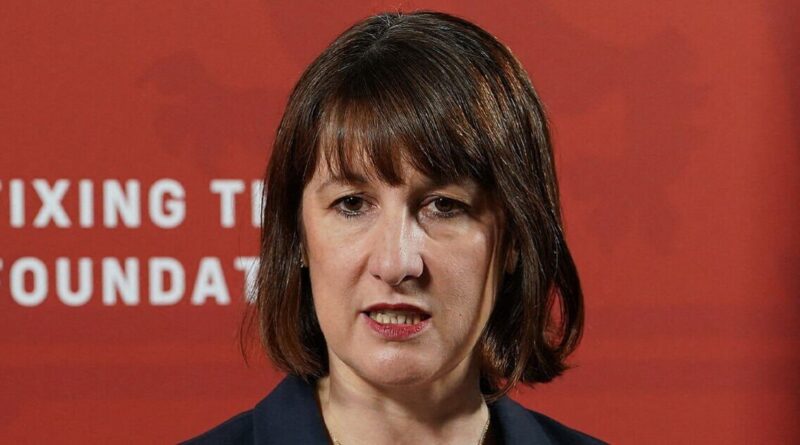Triple lock change in the Budget ‘likely’ as Rachel Reeves has ‘no choice’ | Personal Finance | Finance
Chancellor Rachel Reeves could be forced to change the triple lock with state pensioners getting a less generous increase. The triple lock policy ensures state pension payments rise each April in line with the highest of 2.5 percent, inflation or average earnings. Payment rates are set to go up 4.8 percent next April following the policy.
This would increase the full new state pension from the current £230.25 a week to £241.30 a week, or £12,547.60 a year. But with the costs of the policy ever increasing for the Government, many people have raised concerns the policy could soon become unaffordable for the Treasury.
Businessman Roy Cowley, founder and CEO of tech firm 3D Aesthetics, said: “Next month’s Budget is likely to see changes to the triple lock – mark my words. The Chancellor has no choice but to alter the metrics for next year’s pension increase.
“With inflation still high and the cost of living skyrocketing, Labour can’t afford to keep the promise they made. They’ve backtracked on too many issues already, and pensioners will be the ones left footing the bill.”
Entrepreneur Harry Fenner, former CEO of Navana Property Group, also said he thinks there will soon be changes to the triple lock. He said: “Pensioners across the UK will be hoping for some clarity on the future of the triple lock but based on the Government’s recent track record, there’s little reason for optimism.
“After ridiculously backtracking on cuts to welfare and the Winter Fuel Payment, pensioners can expect changes to the pension increase metric next year – whether it’s a reduction or some form of tweaking remains to be seen.”
The Government slashed the eligibility for the Winter Fuel Payment for last winter’s payment. The benefit was previously available to most people of state pension age but this was changed so you had to be on a particular means-tested benefit, such as Pension Credit.
But after widespread opposition, Labour opened up the eligibility again, so this winter all people of pension age will get the payment again. However, you will have to pay it back if your yearly income is more than £35,000.
Labour also had to rapidly change course on its plans to change the eligibility for PIP (Personal Independence Payment). A bill was put forward to add a new qualifying rule for the daily living part of the benefit.
But as many Labour MPs opposed the plans, this was first changed so it would only apply to new applicants. Ministers then changed the legislation again at the last minute before MPs voted on the bill, so now there will be no changes to PIP until a review of the PIP assessment is completed.
Labour has repeatedly said it will retain the triple lock policy for the duration of this Parliament. When state pension payments rose 4.1 percent in April 2025 thanks to the triple lock, Chancellor Rachel Reeves said the Government has an “ironclad commitment” to the policy.
But Mr Fenner said the Government could soon have to make changes, given the current situation of the economy. He said: “The truth is, inflation is still stubbornly high, holding steady at 3.8 percent for the third month running.
“Energy prices remain through the roof, and there’s little sign of relief on the horizon. In light of this, I’m not convinced Labour will be able to keep the triple lock in its current form.
“If anything, they’ll be looking to cut costs elsewhere, and pension increases could be one of the first things to take a hit.” Mr Cowley urged pensioners to build up their savings as the future looks uncertain.
He said: “You need to start saving now because the increase you’ll see won’t come close to covering the rising costs of everyday life. What’s worse is that many pensioners are already struggling with their bills before the triple lock kicks in. Energy prices are astronomical, and with inflation hovering at 3.8 percent, it’s a tough time for anyone on a fixed income.”
Chancellor Rachel Reeves will present her Autumn Statement before Parliament on Wednesday, November 26.





